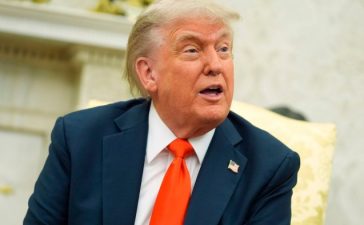Automakers are pissed. They’ve been investing in UK facilities to usher in the transition to electric vehicles (EVs). They’ve been planning even more funding to adhere to a 2030 ban on the sale of new internal combustion engine (ICE) cars and vans. As the deadline nears, however, some drivers have gotten quite vocal about their opposition to the proposed changes, and social media messaging has included numerous attacks on British Prime Minister Rishi Sunak as a result. Suddenly, Sunak decided the ban would be postponed just a little teeny bit. “We are going to ease the transition to electric vehicles,” he announced.
What difference does 5 years make in the scheme of automotive history?
A lot, it turns out.
The UK announced the 2030 ban in 2020, putting it on course to become the first major economy to decarbonize road transport. The ICE ban is an essential element of Britain’s long-term plan to reach net zero emissions by 2050. EVs are expected to account for nearly 18% of UK new car registrations by the end of this year, up from just 0.7% in 2018, according to the Society of Motor Manufacturers and Traders (SMMT). In fact, SMMT concludes that two thirds of UK drivers want to go electric but are held back by lack of incentives and infrastructure — with 9 in 10 who’ve switched stating they would never go back to a conventionally fueled vehicle.
Moreover, to spur mass market adoption, the UK automotive industry has requested that support for private buyers be raised in order to be in line with incentives for businesses.
Automakers have designated billions of dollars in order to electrify their fleets in time for the 2030 deadline, with the thought that demand for EVs would skyrocket once the ICE ban was implemented. The certainty that the ICE ban would begin in 2030 drove many automakers’ decisions, as these companies plan out half a dozen years or more to develop new vehicles, invest in updated factories, train workers, and produce vehicles.
Ford UK chair Lisa Brankin issued a statement condemning the prime minister’s decision to slow the transition to zero emission vehicles.
“Three years ago the government announced the UK’s transition to electric new car and van sales from 2030. The auto industry is investing to meet that challenge. Ford has announced a global $50 billion commitment to electrification, launching 9 electric vehicles by 2025. The range is supported by £430 million invested in Ford’s UK development and manufacturing facilities, with further funding planned for the 2030 timeframe.”
“This is the biggest industry transformation in over a century, and the UK 2030 target is a vital catalyst to accelerate Ford into a cleaner future. Our business needs 3 things from the UK government: ambition, commitment and consistency. A relaxation of 2030 would undermine all 3. We need the policy focus trained on bolstering the EV market in the short term and supporting consumers while headwinds are strong: infrastructure remains immature, tariffs loom and cost-of-living is high.”
Just last week, BMW announced a £600 million ($743 million) government-backed investment to build electric MINIs at its Oxford and Swindon factories in the UK. The MINI brand is set to become purely electric from 2030 globally. “We and the whole automotive industry [need] clarity on the [EV] topic,” BMW said in a statement shared with CNN.
Stellantis reiterated its stance on achieving 100% zero emission new car and van sales in the UK by the end of the decade. After a £100 million ($124 million) investment that updated the facility for EV production, Stellantis had recently begun EV production at its Ellesmere Port plant.
The Tata Group has committed more than £4 billion ($4.9 billion) to build a UK gigafactory which will provide nearly half of the batteries the UK would have needed by 2030.
The impact of such mass endorsements ahead of the transition to EVs may have been underestimated by the prime minister, whose ruling Conservative Party has been trailing the Labor opposition in national polls.
A Prime Minister’s Policy Change could Inhibit Economic Progress
The prime minister’s about-face is little more than self-serving pulp ahead of what is sure to be an upcoming divisive election. Sunak is looking ahead to January, 2025, in order to allow the economy as much time as possible to recover before going to the polls, according to a report from Bloomberg.











